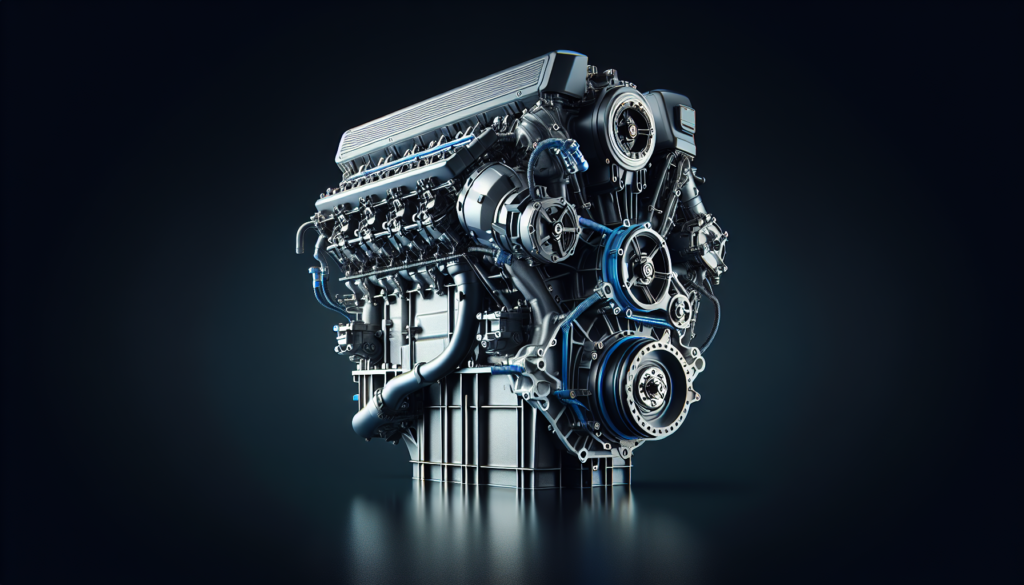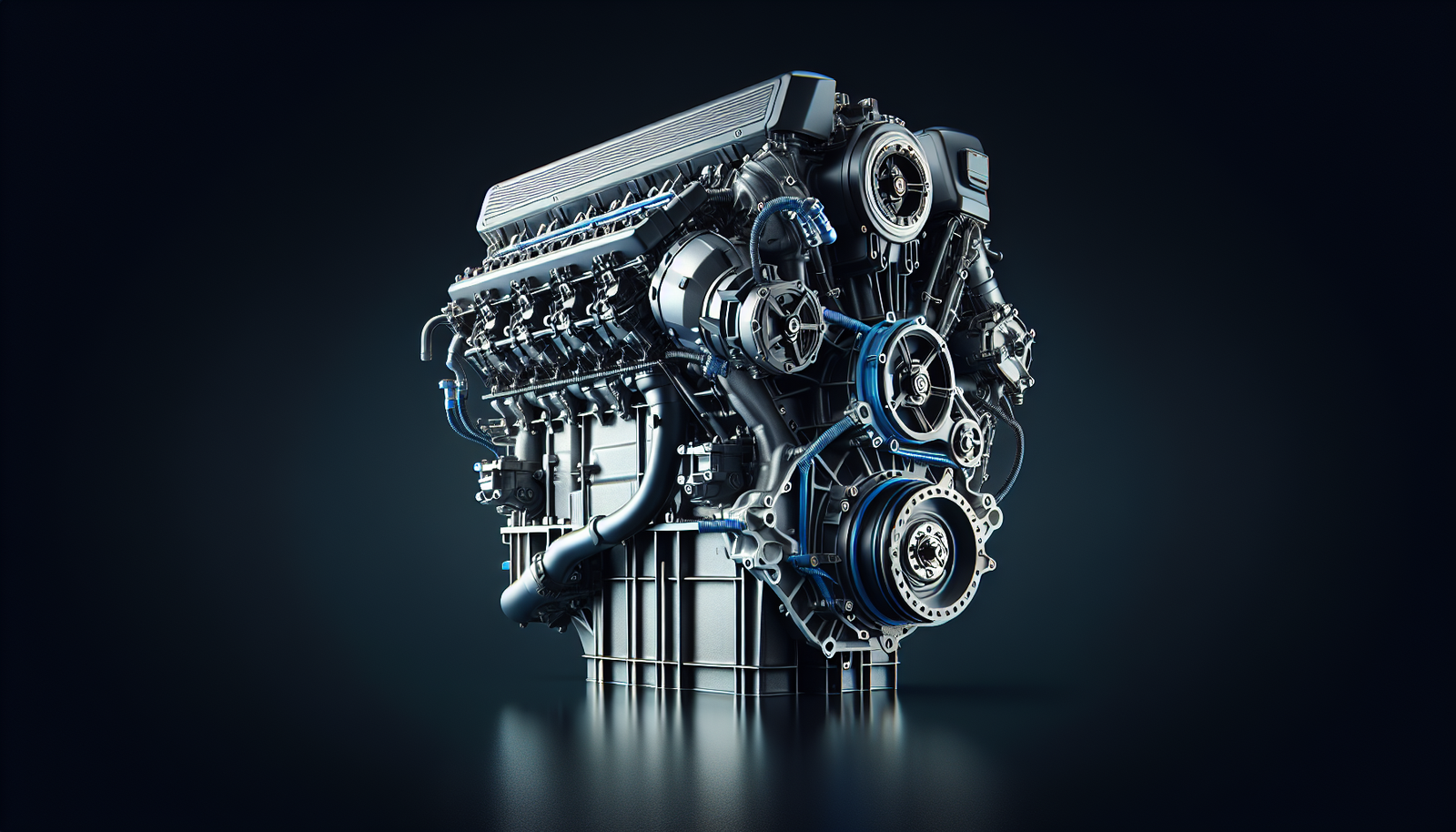Venturing into the world of marine engines can be a daunting prospect, especially when you’re thinking of upgrading your boat’s power unit. The article “Key Considerations When Upgrading Your Boat Engine” offers an in-depth, easy-to-understand guide that can help you navigate this journey with relative ease. From understanding the crux of horse power and fuel efficiency to balancing costs and environmental impacts, the article provides you with a handful of important tips that are backed by industry insights, ensuring you make the most informed decision possible in the process of getting your vessel an upgrade. Let’s take a fresh look at some key considerations when tweaking your boat engine for superior performance and efficiency!

Evaluating your Current Engine
Before you consider upgrading your boat’s engine, it’s wise first to carry out an in-depth evaluation of your current engine. This process will involve several steps, and it will give you a clear idea of what your current engine is capable of and if there is indeed a need for an upgrade.
Assessing its performance
Start by assessing the overall performance of your current engine. Pay close attention to how it runs, how quickly it fires up, and the energy it provides. You can also check for things like fuel consumption rate and compare it to the manufacturer’s specifications. This will give you an insight into how well your engine is performing.
Detecting common issues
Sometimes, your engine may be carrying one or two common issues that limit its performance. Things like overheating, oil leaks, strange sounds among others are red flags that your engine is malfunctioning. It’s good to spot these early, as it prevents costly repairs or replacements in the future.
Estimating lifespan
While every engine comes with a manufacturer’s expected lifespan, several factors can affect this expectancy, including how you use, maintain and service it. Have a rough estimate of where your engine is in terms of its lifespan. If it’s near the end of its life, upgrading could be a wise decision.
Understanding power and energy consumption
Look at how much power your engine offers and the amount of fuel it burns to provide that power. A fuel-thirsty engine is not economical, and an underpowered engine will strain under heavy use. Understanding these things will help you determine what kind of upgrade your boat engine needs.
Understanding your Boat’s Specific Needs
Your boat’s specific needs play a significant role in deciding what kind of engine upgrade you need. This involves a few considerations:
Determining engine compatibility
Not every engine will be compatible with your boat. Make sure to check engine weight, size, mounting, and placement to confirm whether a potential upgrade will fit seamlessly.
Looking at the boat’s capacity
Your boat can only take so much weight and maintain maximum performance. Upgrading to a larger and more powerful engine could exceed your boat’s capacity, leading to suboptimal performance and potential safety risks.
Considering the boat’s type and size
Different boat types and sizes require different kinds of engines. For instance, a fishing boat doesn’t require the same kind of engine as a racing boat. Understanding this will narrow down your choices when looking for an upgrade.
Reviewing your boating activity
The kind of boating activity you engage in will also dictate the type of engine you need. If you enjoy slow, leisurely cruises, you won’t need an engine with high power output. On the other hand, if you’re into quick bursts of speed and sharp turns, you’ll need an engine that can produce the necessary power.
Upgrading vs. Rebuilding
When it comes to improving your engine’s performance, you have two primary options: upgrading or rebuilding. Each option has its pros and cons, so weigh them carefully.
Weighing costs
An upgrade might mean getting a brand new engine, which can be expensive. On the other hand, rebuilding involves improving your existing engine by replacing worn-out parts. This can cost less but might not give you the performance boost you desire.
Comparing time frames
Rebuilding your engine can take time, especially if it involves detailed work. A new engine can be installed relatively quickly, allowing you back on the water sooner.
Checking for parts availability
Before deciding to rebuild, make sure that parts are readily available. Some older models might have sparse or expensive parts, making rebuilding impractical.
Assessing potential performance benefits
Rebuilding your engine can extend its lifespan and improve performance. However, an upgrade may offer greater improvements, particularly if you’re moving from an outdated engine to a newer, more powerful model.

Researching New Engines
After deciding to upgrade, it’s vital to spend time researching potential new engines. This can help you find the best engine for your needs, budget and environmental considerations.
Looking at manufacturer’s reputation
Examine reputable manufacturers and look at reviews and customer feedback. A manufacturer’s reputation can often tell you a lot about the quality and reliability of their engines.
Considering engine power and displacement
Different engines will offer varying degrees of power and displacement. Understanding your boating needs will help you choose an engine with the right amount of power.
Checking for compliance with environmental regulations
New engines must typically meet environmental regulations, especially regarding emissions. Ensure that any potential engine is compliant with these regulations to avoid potential fines or penalties.
Understanding fuel efficiency and consumption rate
An engine’s fuel efficiency and consumption rate directly impact the operating cost. Choose a fuel-efficient engine that balances power and fuel consumption.
Exploring technology advancements
Newer engines generally come with advanced technology designed to improve performance, fuel efficiency, and ease of use. Look for the latest advancements that will deliver the best boating experience.
Planning the Budget
Budgeting is indispensable when planning for a significant investment like a boat engine upgrade.
Estimating total costs
These include purchase price, installation costs, potential retrofitting costs and any additional equipment you might need.
Allocating for installation fees
Professional installation can add to the cost of the upgrade. Alternatively, if you choose to do it yourself, you may need to budget for tools and materials.
Factoring in incidental expenses
Unexpected expenses can arise, such as repairs or adjustments after installation. It’s wise to budget for these.
Planning for maintenance costs
Every engine requires regular maintenance to keep it running smoothly. Consider the cost of routine maintenance, including parts and labor.
Professional Installation vs. DIY
When it comes to installation, you have the option of going the DIY route or hiring a professional.
Comparing costs
While professional installation may be expensive, it has its advantages like proper installation and saving you time. If you have the skills, a DIY installation could cut down on costs, but it might take up a lot of your time.
Evaluating skill requirements
Installing an engine is no small job. It requires skills, knowledge and experience. If you’re not confident in your abilities, hire a professional.
Understanding time commitments
Engine installation can be time-consuming, especially for non-professionals. Consider if you can afford to spend several hours or even days on the task.
Accounting for potential mistakes and corrections
DIY installations come with the risk of mistakes. You might need to factor in the time and cost it takes to correct any errors.
Regarding Warranties and Service Contracts
Understanding terms and conditions
Before you seal the deal, understand the warranty’s terms and conditions that come with the new engine. It protects against defects and may cover a part or full cost of repairs within a specific period.
Factoring warranty into the purchase decision
A strong warranty can provide peace of mind, but it could also add to the cost of your engine. Balance the cost of the engine with the benefits of the warranty.
Considering the value of service contracts
Service contracts, while similar to warranties, are typically purchased separate and offer extended coverage. Assess the costs vs. the benefits to see if it adds value.
Checking local service availability
Before you purchase, make sure there is a local service center that can carry out repairs under warranty or service contract. It’s no good having coverage if no one nearby can service your boat.
Preparing for Increased Power and Speed
With a new, powerful engine, your boat’s performance is bound to increase.
Anticipating altered handling characteristics
More power can change how your boat handles. Plan to spend some time learning to manage the increased engine output.
Planning for potential hull modifications
In some cases, the increased power might necessitate hull modifications for optimal performance and safety.
Considering driveline and propeller adjustments
The driveline and propeller might also need to be adjusted or replaced to handle the new engine’s power.
Addressing increased fuel consumption
With great power comes increased fuel consumption. Plan your trips accordingly, and consider the impact on running costs.
Environmental Considerations
It’s good to ensure your boating activities do not harm the environment.
Researching eco-friendly options
Some engines are more eco-friendly than others due to lower emissions and better fuel efficiency. Consider these when choosing your new engine.
Understanding emissions standards
Emissions standards vary depending on your location, be sure your new engine complies with these standards to avoid penalties.
Factoring in clean-up and disposal of old engine
You’ll need to dispose of your old engine in a manner that doesn’t harm the environment. It involves cleaning up oil and disposing of it correctly.
Accounting for noise pollution
Powerful engines can generate a lot of noise. Consider how you can minimize noise pollution, especially if you boat in populated areas.
Fuel Type Decision
Finally, decide what type of fuel you want your new engine to use.
Comparing diesel, gasoline, and hybrid engines
Each type of engine has its advantages and drawbacks. Consider factors such as power output, fuel efficiency, cost, and availability of fuel.
Factoring in fuel availability
Check regular availability of your chosen fuel type especially if you boat in remote areas.
Analyzing cost per running hour
Different fuels have different costs. So, calculate how much each type of fuel will cost you per running hour, taking into account fuel consumption rates and fuel prices.
Understanding the potential need for tank modifications
Using a different type of fuel might require tank modifications. Consider this when deciding on fuel type.
In conclusion, upgrading your boat engine is a significant investment that can result in a more enjoyable boating experience. However, it requires careful thought and proper planning. Using these key considerations, you’re well on your way to selecting and installing the perfect engine upgrade for your boat.

